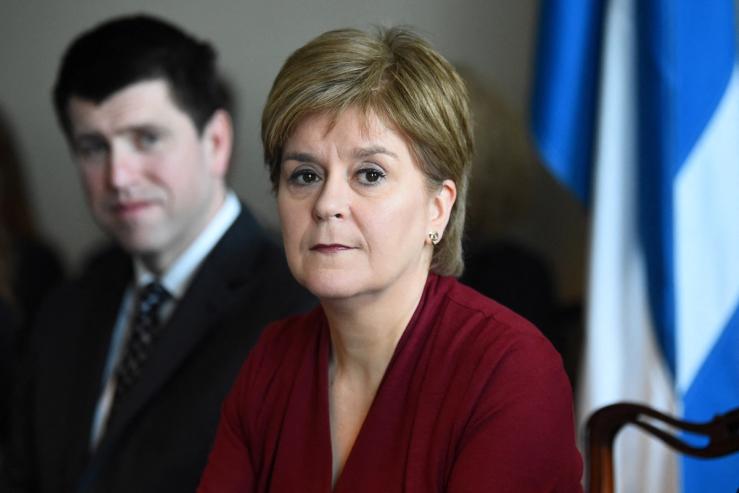The News
Scotland’s government on Wednesday issued a formal apology over its forced adoption campaign between the 1950s and 1970s, in which thousands of unmarried women seen as unsuitable parents were forced to give up their children for adoption.
The apology comes as more countries around the world are acknowledging the long-term consequences many of these separated children and mothers have faced. Here’s a rundown of which other countries have issued similar apologies.
The View From Scotland
In one of her final acts as Scotland’s leader, First Minister Nicola Sturgeon offered a “sincere, heartfelt and unreserved” apology to what The Herald newspaper estimates is about 60,000 women who were torn away from their children.
Sturgeon acknowledged that some of these separated children likely faced abuse because of the practice.
“It is important to say very clearly that many of them went to loving homes, acknowledging these injustices should never be seen as a rejection of the deep bonds that people share with adopted families,” she said. “But it is also clear that many of those affected — far too many — had a very, very different experience.”
The View From Australia
In 2013, Australia became the first country to apologize for its forced adoption campaign, with then-Prime Minister Julia Gillard also promising AU$5 million funding to improve access to specialist support, records tracing, and mental health care for those affected by forced adoption.
But one decade after the announcement, dozens of children separated from their mothers say that the government has failed to keep its promise, with many saying they haven not yet received documents to reclaim their original identity or reclaim hospital documents, state broadcaster ABC News reported.
ABC estimated that were about 150,000 forced adoptions from the 1950s to the early 1980s.
The View From Ireland
Ireland ran a similar adoption campaign throughout the 20th century, with many unmarried women first sent to Catholic maternity homes where their children were then sent away, sometimes to places as far away as the United States.
The maternity homes made international headlines when a substantial number of human remains were found at one home in northwest Ireland. An independent commission later found that 9,000 children died at these homes.
The Catholic Church first apologized for its role in the maternity homes in 2014, with the Irish government later offering its own apology in 2021.
The View From Canada
Canada’s infamous “Sixties Scoop” campaign targeted not children of unmarried women, but rather Indigenous children who the government believed would be raised better by white families, foster homes, or residential schools.
It is estimated that 20,000 children were separated from their families via the program that continued into the 1980s.
Both Pope Francis and Canadian Prime Minister Justin Trudeau last year issued formal apologies over the atrocities committed at residential schools and through the campaign, but activists say provinces are lagging in offering compensation and social support for children separated at birth.


